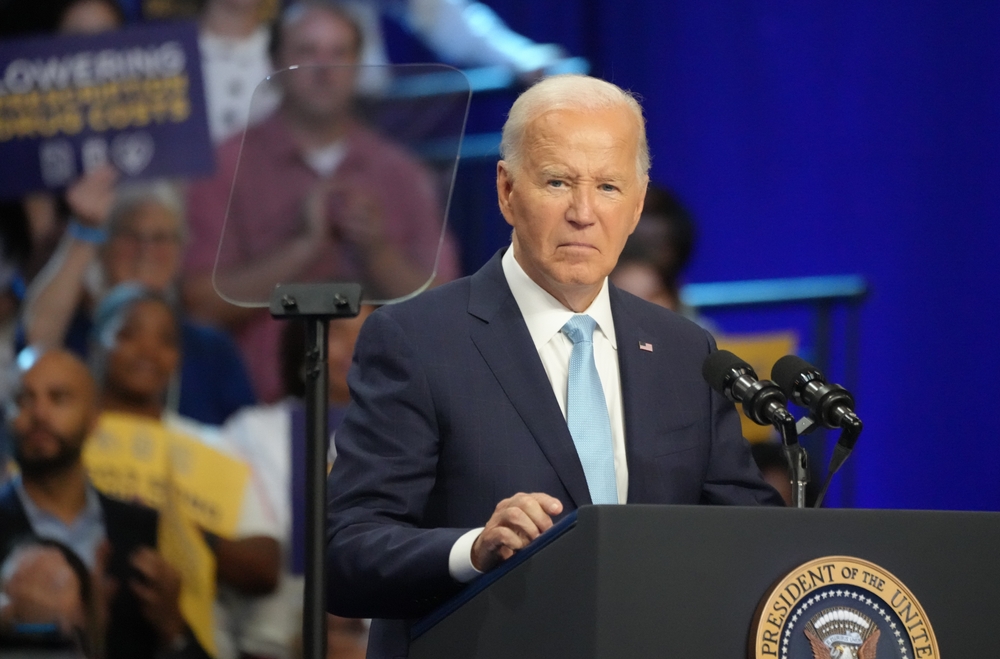As the Biden administration enters its final days, a significant $500 million security package for Ukraine has been unveiled, emphasizing America’s commitment to counter Russian aggression. President Biden approves a final $500 million security package for Ukraine, leaving questions about future support under new leadership.
Final Days, Decisive Moves
President Joe Biden approved an additional $500 million in military support for Ukraine, marking a significant move amidst ongoing Russian threats. According to sources who preferred to remain anonymous, this latest security package will draw from existing U.S. military stockpiles under the Presidential Drawdown Authority program. Such strategic delivery plays a crucial role in ensuring that Ukraine remains fortified against any potential escalation by Russian forces.
Biden administration to announce final $500 million package for Ukraine – while California burns.
This $500 million represents the completion of a total of $65 billion in security assistance from 2022.
It was previously reported that the final package falls "slightly short" of… pic.twitter.com/hfcFwzPlic
— Sprinter Observer (@SprinterObserve) January 9, 2025
U.S. Defense Secretary Lloyd Austin recently held discussions with Ukrainian officials and Western allies at Ramstein Air Base in Germany. Austin emphasized the importance of supporting Ukraine to deter further aggression and maintain regional stability. The aid package involves various military components, such as missiles for jets, support for F-16 aircraft, armored bridging systems, and communication equipment—all aimed at strengthening Ukraine’s defense posture.
Biden's last Ukraine aid package will be $500 million of arms, leaving $3.8 billion in PDA for Trump.
Perhaps the only silver lining here is that Trump won't have the excuse of needing Congress to pass aid—he can send weapons on day one if he chooses to. https://t.co/YEiUvBIGWD
— Doug Klain (@DougKlain) January 8, 2025
Strategic and Geopolitical Implications
U.S. Secretary of State Antony Blinken asserted that the Biden administration’s “Strategy of Renewal” places the U.S. in “a much stronger geopolitical position today than it was four years ago.” This strategic stance highlights Biden’s foreign policy efforts, seen through measures such as enhancing restrictions on China’s access to AI chip technology and applying pressure to Israel and Hamas to curtail hostilities. While some analysts view Biden’s approach as cautious, it underscores a calculated effort to secure his foreign policy legacy.
“in a much stronger geopolitical position today than it was four years ago.” – Antony Blinken.
Despite criticism and potential fluctuations in U.S. political leadership, Kyiv remains hopeful and maintains openness to dialogue. Ukrainian President Volodymyr Zelensky has expressed his willingness to work with incoming U.S. leadership, proposing using frozen Russian assets to purchase U.S. defense systems. Nevertheless, this ongoing support for Ukraine marks a critical phase in potentially shaping the region’s future while advancing democratic principles.
Balancing Criticism and Support
A portion of the American populace and political analysts have scrutinized Biden’s foreign policy decisions. They note its reactive nature, positing that his administration’s approach might open the door for a potential Trump resurgence. Nevertheless, the data confirms substantial backing for Biden’s aid measures—a consistent policy intent to fortify Ukraine against aggressive adversaries.
“President Joe Biden’s administration is preparing to announce Wednesday the final 500 million dollars in US military assistance it will provide to Ukraine, according to people familiar with the plans.” people familiar with the plans.
Defense Secretary Austin, amongst the key figures enforcing this aid package, cautioned against the retreat that would embolden further aggression by Russia. Given the geopolitical implications, Austin and other officials solidify this package’s importance—representing a robust military alliance and an unwavering commitment to global peace and sovereignty.

